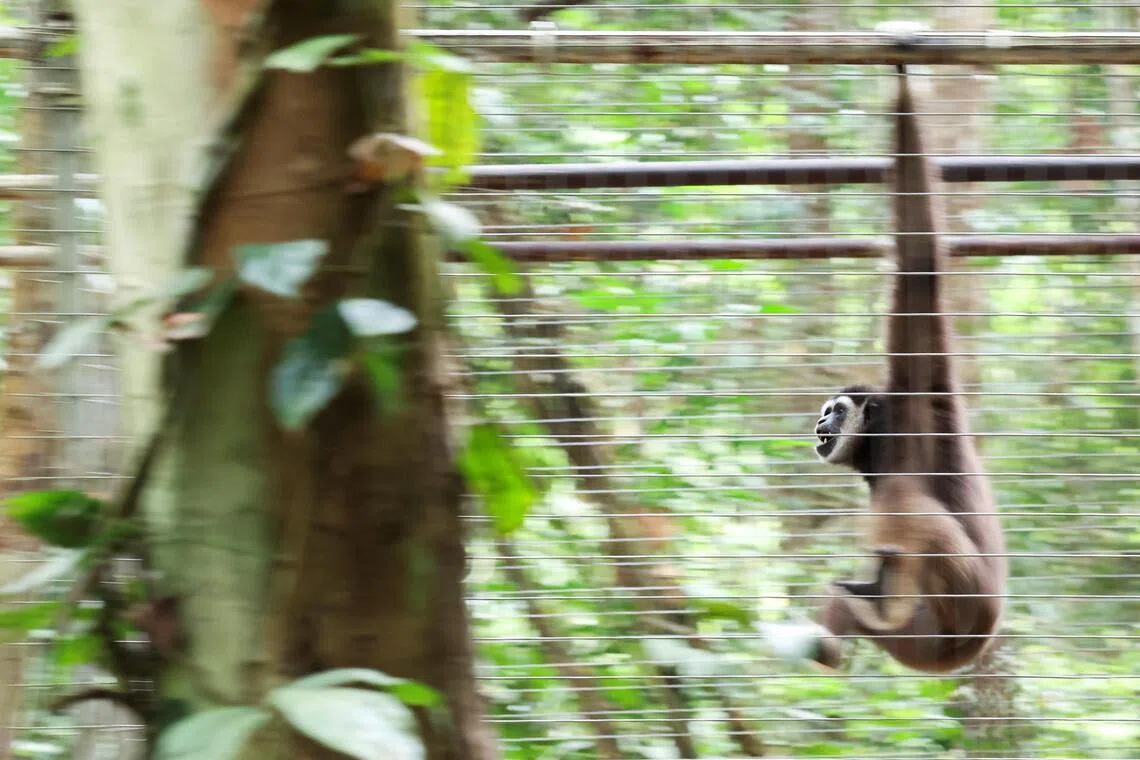Malaysia emerging as key link in gibbon trafficking chain, says report
Sign up now: Get insights on the biggest stories in Malaysia

A report revealed that more than 336 individual gibbons were confiscated between January 2016 and August 2025.
PHOTO: REUTERS
PETALING JAYA – Malaysia has emerged as one of the countries most implicated in the illegal gibbon trade in 2025, as trafficking of the endangered primates reaches record levels across South and South-east Asia.
An analysis by Traffic, the global adviser on the trade in wild species, revealed that more than 336 individual gibbons were confiscated between January 2016 and August 2025, with seizures in 2025 alone already accounting for 20 per cent of the total.
Released in conjunction with World Gibbon Day, the report highlighted a worrying shift in trafficking patterns, showing that India and Malaysia have become increasingly prominent links in the illegal gibbon trade chain, with gibbons being smuggled along a Malaysia-to-India route.
“Numerous attempts to smuggle gibbons in air passenger luggage between the two countries, driven by India’s growing appetite for exotic pets, are partly to blame for the shift. Many don’t survive the journey, resulting in the deaths of these animals – mostly juveniles,” it said.
In one incident in May, seven dead gibbons were found in the possession of two individuals at a hotel in Mumbai, India.
“They had flown from Malaysia with nine primates hidden in their checked-in luggage,” the report added.
Over the past decade, a total of 83 seizure incidents were recorded, leading to the arrest of 139 individuals.
“Arrests, prosecutions and convictions in Indonesia far outnumber those elsewhere in South and South-east Asia. Data also showed that about a quarter of all cases involved the surrender of illegally kept pet gibbons, with over 90 per cent of these occurring in Indonesia,” it said.
Traffic South-east Asia director Kanitha Krishnasamy urged regional authorities to focus on dismantling trafficking networks and tightening airport controls, where many smuggling attempts have taken place.
“Every seizure and arrest, while devastating for the animals, offers an opportunity to investigate those behind the crime. Who is commissioning the poaching and trafficking, and who are the ultimate recipients?
“It’s time to move beyond focusing only on low-level middlemen – treated as the cost of doing business – when the real masterminds continue to pilfer and profit,” she said.
Gibbons, small apes known for their agility and distinctive duets sung between mating pairs, are found across 11 countries from India to Indonesia. However, most of the 20 recognised species are now endangered, with illegal trade and habitat loss driving populations to the brink. THE STAR/ASIA NEWS NETWORK


